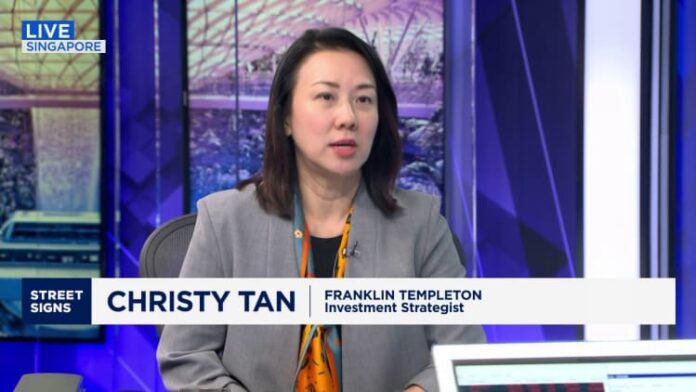March 9, 2024, China, Beijing: Ni Hong (r.), China's Minister of Housing and Rural Development, speaks at a press conference.
Johannes Neudecker | Picture Alliance | Getty Images
China will expand its “white list” of real estate projects and accelerate bank lending for those unfinished projects to 4 trillion yuan ($561.8 billion) by year-end, the country's housing ministry said on Thursday.
Ni Hong, China's Minister of Housing and Urban-Rural Development, made the announcement at a press conference alongside officials from the central bank, the Ministry of Finance and the National Financial Regulatory Administration.
A total of 2.23 trillion yuan in loans have already been approved to whitelisted developers. That figure will nearly double to 4 trillion yuan by the end of 2024, according to a senior official at the financial regulator.
China's “whitelist” initiative launched in January, allowing city governments to recommend housing projects to banks for faster lending. The aim was to ensure the completion of unfinished residential projects so that they can finally be handed over to buyers.
All commercial housing projects are now eligible for the whitelist, said Xiao Yuanqi, vice minister of finance. This move is expected to expand the list. It was not immediately clear how many other projects would be supported. Analysts said the comment did not mean all residential projects could be added to the whitelist.
Xiao also stressed that banks should provide the funds “as soon as possible” and said they could release the loans to developers in full rather than in tranches, according to CNBC's Chinese translation.
The briefing was the latest in a series of high-level policy announcements from the government to stimulate the economy.
In late September, People Bank of China Governor Pan Gongsheng announced a 50 basis point cut in the reserve requirement ratio (RRR). He also lowered the minimum down payment for second home loans nationwide from 25 percent to 15 percent.
Days later, at a high-level meeting chaired by Chinese President Xi Jinping, officials pledged to “halt the housing market decline and spur a stable recovery.”
Disappointing briefing?
Officials at Thursday's briefing appeared mostly concerned with “fine-tuning existing policies,” said Bruce Pang, chief economist and head of research for Greater China at JLL. “It will take time for the improvement in sales volumes and prices to translate into real estate investment and construction.”
Some investors saw the recent flurry of activity as a sign that Beijing was finally ready to take drastic action to boost growth and had hoped for more stimulus from the briefing. As Xiao spoke, China's CSI 300 real estate index fell over 5%, a sharp reversal from gains of around 8.7% in the previous three trading sessions.
Volatility in China's stock market is likely to continue as investors “lack conviction that the stimulus package and measures announced will turn things around,” said Chi Lo, senior economist at BNP Paribas Asset Management.
Over the weekend, Chinese Finance Ministry officials announced they would allow local governments to issue more special bonds for land purchases and that affordable housing subsidies could be used for existing housing stock, not just new construction.
Chinese real estate stocks jumped on Monday following the news, with the Hang Seng Mainland Properties Index rising over 2%. Real estate was also the biggest gainer in the CSI 300 in mainland China, up almost 5%.
Since its peak in 2020, the HSMPI has lost more than 80%. In May, Ni told reporters at a news conference that developers “who need to go bankrupt should go bankrupt or restructure.”
Real estate crisis
More than 50 cities across China have introduced measures to boost the property market, according to state media citing the Housing Ministry.
Ahead of the Golden Week holiday, the city of Guangzhou announced it would lift all restrictions on home purchases. Meanwhile, the governments of Beijing, Shanghai and Shenzhen have taken measures to ease restrictions on home purchases by non-local buyers and lower minimum down payment rates.
The numerous measures came after China's previous measures led to little significant recovery. According to the National Bureau of Statistics, new home prices fell in August at their fastest pace in more than nine years.
The value of new homes sold fell 23.6% in the year to August, slightly better than the 24.3% decline year to date (as of July). Average home prices fell a seasonally adjusted 6.8% in August from the previous month, according to Goldman Sachs.
The real estate sector – which once accounted for more than a quarter of China's economy – has been in a painful downturn since 2021 as Beijing cracked down on the sector's high debt levels, causing a number of developers to default on their debts and leaving many behind Housing projects had to be left unfinished. This had significantly dampened homebuyers' confidence in the market.
— CNBC's Evelyn Cheng contributed to this story.















